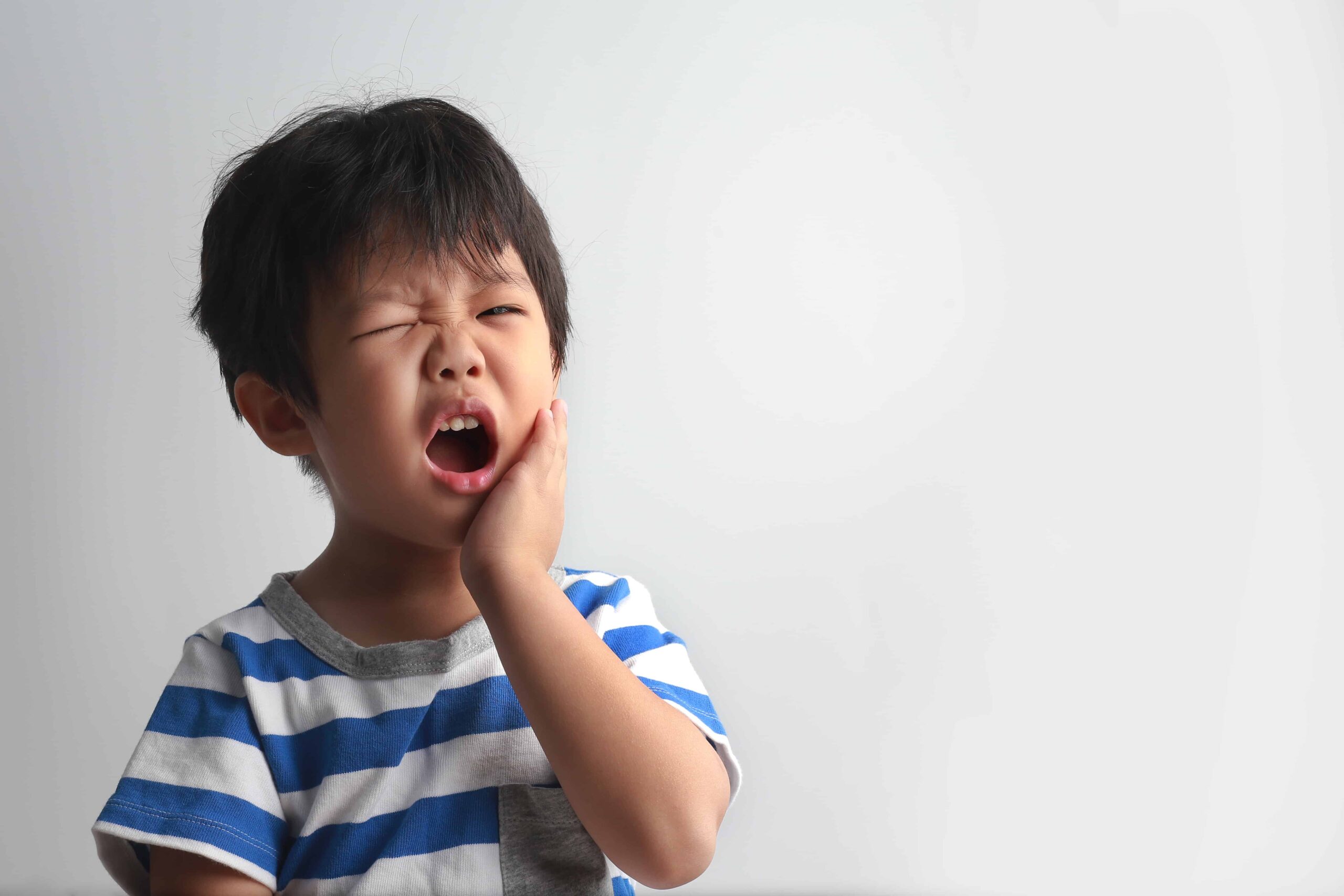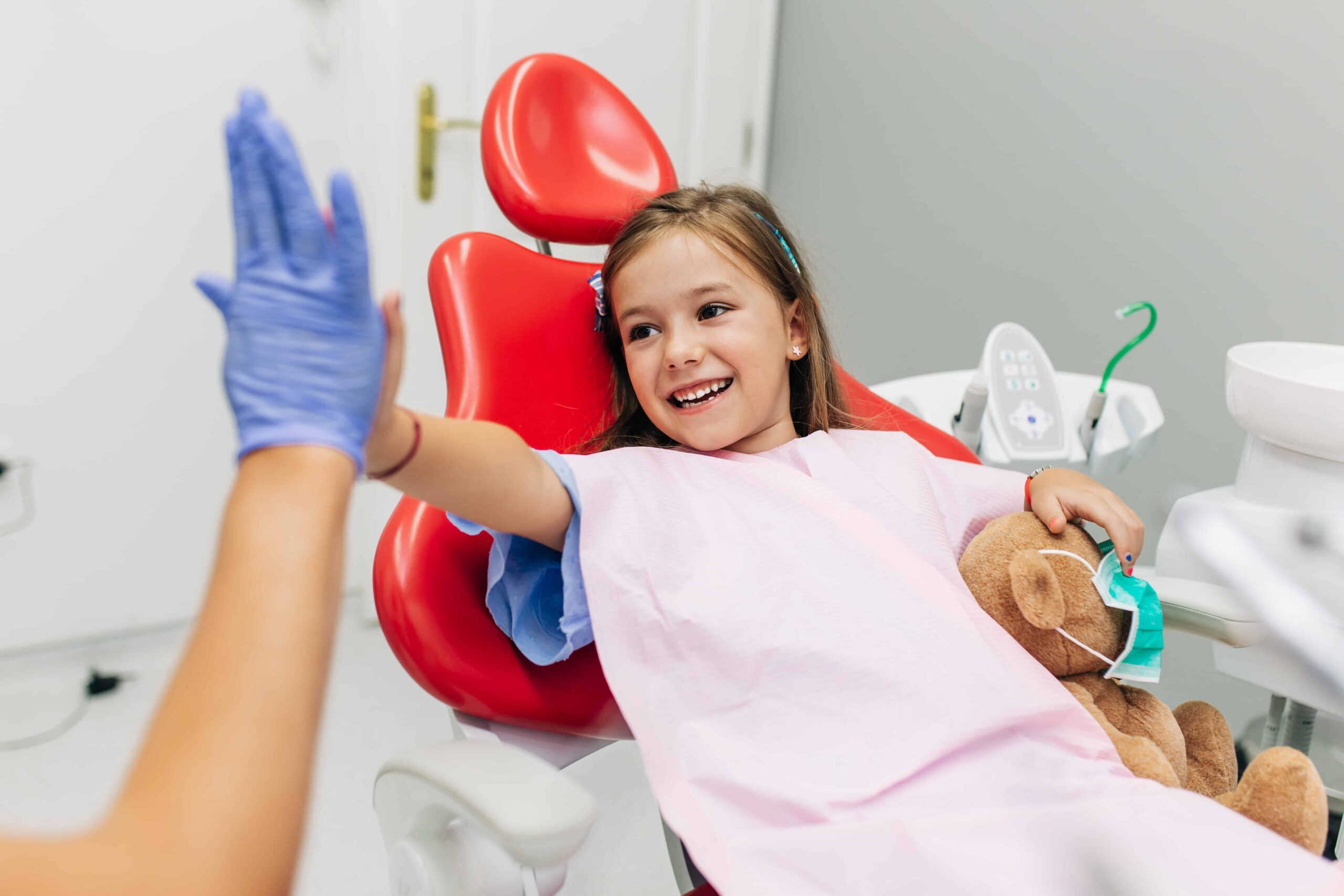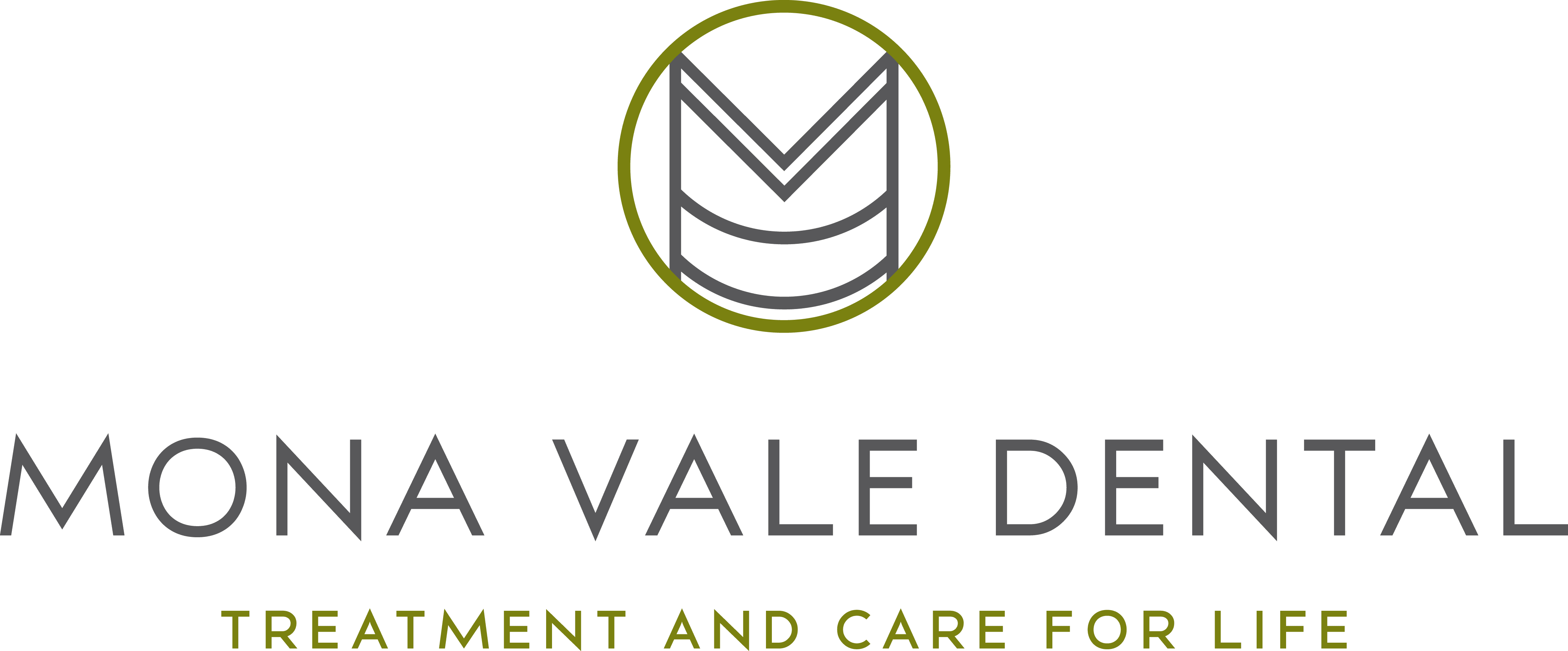Nobody wants to see their child struggling to eat or socialise because they have an oral infection.
And yet, this is a painful reality for too many young people.
Untreated tooth decay is fairly widespread among Australian children, according to the latest National Child Health Study.
-
- Children aged 5 to 10: around 27 per cent had at least one baby tooth with untreated decay.
- Children aged 6 to 14: around 11 per cent had at least one permanent tooth with untreated decay.
Not only does a dental infection cause significant pain, it can also lower self-esteem, especially if your child is hiding their smile.
More concerningly, untreated oral infection can worsen existing health conditions and even increase people’s risks of developing chronic illnesses such as heart disease and diabetes.
Thankfully many oral problems can be prevented, reversed or successfully treated with good oral hygiene, a healthy diet and early intervention when symptoms appear.
Let’s talk about what you can do to provide the best dental care for children. We’ll start by focusing on oral infections and then address other common questions and concerns.
Dental care for children to keep oral infection away
Tooth decay is largely caused by a bacteria called Streptococcus, which thrives off sugar.
Problems arise when teeth aren’t adequately cleaned. Bad bacteria turns the lingering sugar into acid. This erodes tooth enamel over time and creates the perfect environment for cavities and infection.
Oral hygiene:
Around 33 per cent of children don’t brush their teeth twice daily, according to the Royal Children’s Hospital National Child Health Poll.
This is a worry, considering that regular brushing is the best way to prevent decay from occurring.
For young children:
-
- Make sure they brush their teeth properly twice a day, for two minutes each time. Monitor their technique to make sure it’s correct.
-
- An electric toothbrush with colourful designs makes dental care for children fun.
-
- Use a kid’s toothpaste with 400-550 ppm of fluoride (less than standard products).
- Encourage good flossing habits (daily or every second day).
For babies and toddlers:
-
- Gently wipe gums with a wet, clean cloth before the first tooth emerges. Note: this is particularly important after bottle or breast-feeding (milk contains lactose – a type of sugar that feeds bacteria).
-
- What about after the first tooth arrives? Brush with a teether toothbrush using plain water at the end of the day.
-
- Please only use fluoride-free toothpaste before 18 months of age.
- A small dollop of low-fluoride toothpaste can be used twice a day between 18 months to two years.
Many parents aren’t fussed about cleaning baby teeth, as these will eventually be replaced with permanent teeth.
This is a mistake!
It’s important to encourage good habits from the start, plus your child is more likely to have healthy adult teeth if they look after their gums and baby teeth.
Dental care for children starts with a healthy diet:
Less sugar:
I know it’s fruitless to tell children to stay away from sweet foods and beverages, but try to limit these indulgences to the occasional treat.
At the very least, discourage snacking on sweets between meals, to give teeth a rest from the acidity (when we eat, our mouths become acidic for 30 minutes, before returning to their neutral PH state).
The best time for a sweet treat is after dinner, as the sugar won’t have a chance to linger before being brushed away.
More nourishing foods:
Gums and teeth need healthy microbes to protect against decay. Encourage your children to consume these nourishing foods and beverages to strengthen plaque-fighting bacteria:
- Yoghurt and cheese
- Milk kefir
- Sauerkraut and kimchi
- Sourdough bread
- Sour pickles
- Miso
- Tempeh
- Enhanced milk
Cavities are contagious:
Many people are surprised to learn that tooth decay is actually contagious.
Parents can easily pass on dental caries to their children by sharing food or drink, using the same toothbrush, blowing on food or kissing babies on the mouth. Please take care to make sure you don’t spread your saliva to your child.
It’s also important to take care of your own oral health, so that you have no active cavities to spread on the occasion that you slip up and use the same utensils as your child, or let them take a bite of your meal.
Take your child to the dentist if you notice any signs of oral infection:
Oral infection is easier to treat in the early stages, before it spreads and causes more damage.
Look out for these signs of infection in teeth or gums:
- Dull white band that’s close to the gum line
- Yellow, brown or black band close to the gum line
- Toothache
- Sensitive teeth (especially when eating or drinking)
- White, brown, black or grey spots on teeth
- Bad breath
- Red or swollen gums
- Gums bleed during brushing
- Receding gums that pull away from the teeth
- Pus on teeth or gums
- Changes in tooth alignment
Chalky teeth in children (common developmental condition)
Some children are more susceptible to tooth decay, even when they brush twice daily and eat healthy foods.
Molar hypomineralisation (“chalky teeth”) affects one in six Australian children. This painful condition is caused by developmental problems inside the jaw during infancy. It mainly impacts primary and permanent molars, but incisors can be affected too.
Chalky teeth lack healthy enamel, so decay easily.
Symptoms include:
- Bright white spots on teeth
- Light brown spots on teeth
- Patches of cream, yellow or brown on teeth
- Sensitivity to hot or cold foods
- Pain when eating
- Toothache after brushing teeth
If you notice any of these signs, book an appointment with your child’s dentist (early detection saves teeth).
You can read our article about molar hypomineralisation for more information.
Emergency dental care for children
Injuries to the mouth:
First, please check your child hasn’t been wounded anywhere else. Any damage to their head must be treated as a priority.
Make sure there’s no bleeding or swelling on their head (continue to check for hours after the accident). Is there any bleeding, swelling or disrupted bleeding? Take your child to the emergency department immediately.
Damaged teeth:
In the event that your child loses their permanent tooth, your dentist can reattach it, if you act quickly and follow these steps:
-
- Hold the tooth carefully by the crown, don’t touch the root.
-
- Softly push the tooth back into its socket. Alternatively, transport the tooth in milk or a saline solution as you travel to the dentist.
-
- As a last resort, simply place the tooth in plastic wrap with some of your child’s saliva.
- This process applies to any chipped or broken parts of your tooth.
Note: if your child loses their baby tooth, it won’t be reattached.
Toothaches in children:
Rinse their mouth with salt water, apply a cold compress to ease swelling and ring their dentist. Paracetamol can help relieve pain too.
Teething in babies:
This isn’t a dental emergency, but can feel like one when your baby won’t stop crying from the pain. A small amount of pressure with a cold spoon or chilled washcloth can help relieve discomfort, but make sure it isn’t frozen or too cold!
Damaged wires or braces:
A broken wire can cause a lot of pain, especially when your child is eating or talking.
You can use an eraser to gently push the wire into a more comfortable position. Another temporary solution is to cover the broken wire with cotton, orthodontic wax or a small gauze.
Don’t be tempted to snip the wire, as there’s a risk your child may swallow or inhale the tiny pieces. Adults with braces should follow this advice too!
Regular visits to your dentist
Children should visit their dentist every six to 12 months for regular check-ups, even if there are no dental concerns.
The dentist will clean their teeth thoroughly and check for any signs of problems that may require early intervention.
If you’re wondering when to take your baby to the dentist, my advice is to book an appointment when the first tooth starts to emerge, or after 12 months. However, if you have any concerns, get in earlier!
Are you worried about paying for appointments?
The federal government understands that dental care for children is critical, so eligible people (aged 17 or under) can receive up to $1,026 to cover two years of basic dental services.
Mona Vale Dental is experienced in dental care for children
We believe a positive experience at our clinic will set your child up for a lifetime of good dental health!
Our friendly team does everything we can to make sure your child feels comfortable and gets the best care. We even offer safe and gentle sedation options that help anxious patients to feel relaxed (though this usually isn’t required after they settle in).
Fill out this contact form or call our team on (02) 9997 1100 to book an appointment or find out more.





